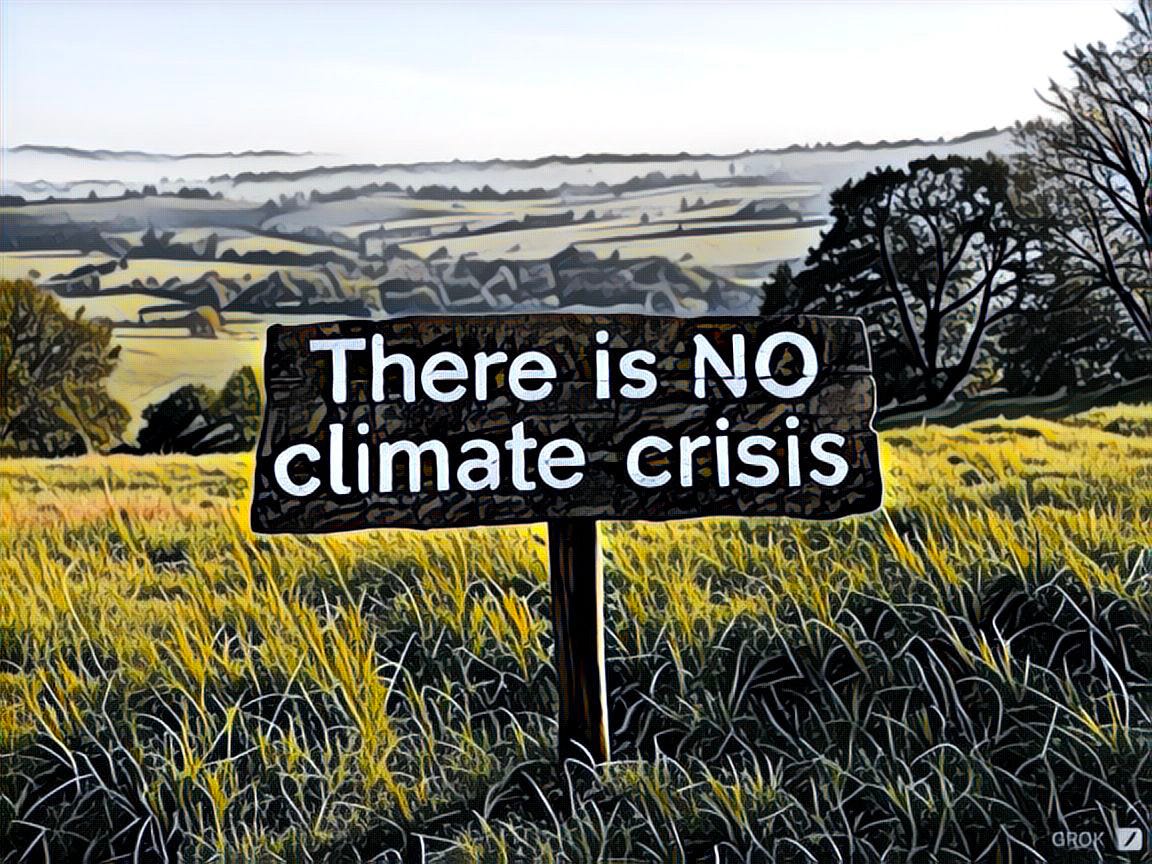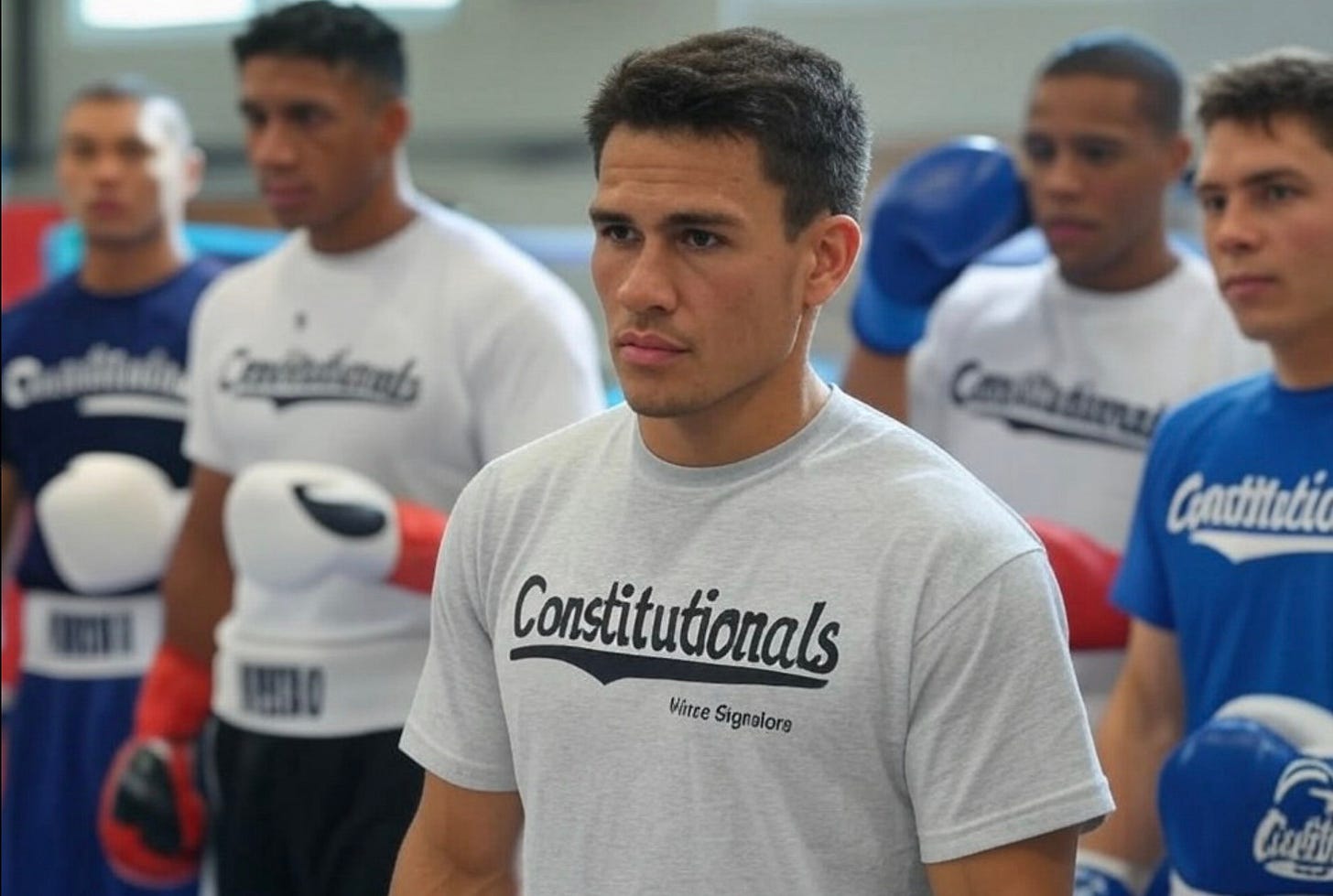“States That Produce Our Energy Sue New York Over It's Blatantly Unconstitutional Climate Change Superfund”, By THOMAS J SHEPSTONE
“In an unprecedented effort, New York has set out to impose tens of billions of dollars of liability on traditional energy producers disfavored by certain New York politicians.”
States That Produce Our Energy Sue New York Over It's Blatantly Unconstitutional Climate Change Superfund
The states of West Virginia, Alabama, Arkansas, Georgia, Idaho, Iowa, Kansas, Kentucky, Louisiana, Mississippi, Missouri, Montana, Nebraska, North Dakota, Ohio, Oklahoma, South Carolina, South Dakota, Tennessee, Texas, Utah, Wyoming, West Virginia Coal Association, Gas and Oil Association of West Virginia, Inc., America’s Coal Associations, and Alpha Metallurgical Resources, Inc. have sued Letitia James, New York’s Attorney, along with the New York State Departments of Environmental Conservation, and Taxation and Finance, regarding the state’s ludicrous Climate Change Superfund.
The complaint filed by these plaintiffs makes good reading and here is the introduction (emphasis added, paragraphing modified and citations deleted for easier reading):
INTRODUCTION
The State of New York believes it can seize control over the makeup of America’s energy industry. In an unprecedented effort, New York has set out to impose tens of billions of dollars of liability on traditional energy producers disfavored by certain New York politicians.
These energy producers needn’t operate in New York before becoming a target. And New York consumers won’t bear the brunt of these crushing new costs once they’re imposed. Rather, New York intends to wring funds from producers and consumers in other States to subsidize certain New-York-based “infrastructure” projects, such as a new sewer system in New York City.
The Climate Change Superfund Act is an ugly example of the chaos that can result when States overreach. It imposes retroactive fines on traditional energy producers for their purported past contributions to greenhouse gas emissions (a term New York applies to certain substances, which were lawful operations endorsed by both federal and state regulators.
And rather than focusing on greenhouse-gas emissions released in New York, the Act punishes a small group of energy producers for global greenhouse gases emitted from all sources into the atmosphere from 2000 to 2018. Yet coal, oil, and natural gas were helping New York during that time. They helped keep the lights on in Albany, manufacture the steel that supported New York City’s iconic skyscrapers, and fuel the industry that keeps New York ports humming.
This liability could be devastating to traditional energy producers. Indeed, the ruinous liability that the Act promises—especially when paired with similar efforts that might arise in other States—could force coal, oil, and natural gas producers to shutter altogether.
Unfortunately for New York, the U.S. Constitution has something to say about the State’s retroactive and extraterritorial shakedown. Among other things, the Constitution gives Congress the power “[t]o regulate commerce … among the several states.”
In creating that grant, the Founders recognized that certain categories of conduct are best regulated through nationwide rules. And the Commerce Clause implies the converse as well: a patchwork of state-by-state regulations on some subjects subverts the States’ common interest and must be prohibited.
Congress exercised its Commerce Clause power in this context by enacting the Clean Air Act. The Act regulates certain sources’ emission of pollutants into the air in a variety of ways.
For instance, the Clean Air Act empowers the Environmental Protection Agency to address greenhouse emissions from fossil-fuel-fired energy facilities through New Source Performance Standards.
And EPA imposes procedures for new or substantially modified facilities to use the best available control technology for greenhouse gas emissions. So while States have “the primary responsibility” to prevent and control “air pollution … at its source,” the Clean Air Act gives the federal government the chief role in determining interstate emissions standards.
And that choice makes sense. Emissions standards that vary from one State to another would divide the States and counter the goal of promoting interstate trade that helped unite the States under one constitution. So for that reason, decisions about “[t]he basic and consequential tradeoffs involved” in deciding how much fossil-fuel generation there should be in the “coming decades” rest with Congress (and, subject to an appropriate delegation, federal executive agencies). Even so, New York has purported to take that task on for itself through the levies in the Act.
The Commerce Clause not only vests Congress with the power to regulate interstate trade, but it also “contain[s] a further, negative command” that effectively forbids the enforcement of “certain state [economic regulations] even when Congress has failed to legislate on the subject.”
New York cannot ignore the Commerce Clause and impose rules that fall within the Clause’s negative implications. And for that matter, New York cannot “legislate for, or impose its own policy upon[,] the other” States.
Yet, the Climate Change Superfund Act looks exactly like the “state tariffs” that constituted “one of the chief evils that led to the adoption of the Constitution” and the Commerce Clause.
The Commerce Clause is hardly the only problem with the Climate Change Superfund Act. Quite the opposite: the Act violates the U.S. Constitution, the New York Constitution, and federal law for several reasons.
Subscribe
First, the inherent structure of the U.S. Constitution precludes the Act. The Supreme Court has already recognized that States must tread carefully when regulating interstate emissions at all, at least outside the context of a cooperative federalism scheme imposed by Congress.
Interstate disputes over air and water resources “demand” federal resolution. If States were instead free to exercise “independent and plenary regulatory authority” over the same emissions—as New York purports to do here—the result would be “chao[s],” including “confrontation between sovereign states,” “impossible to predict [] standard[s],” and a wholly “irrational system of regulation.” Such dangerous outcomes are just over the horizon if the Climate Change Superfund Act is allowed to stand.
The Constitution also recognizes the “equal sovereignty” afforded to all States. “[I]t follows from these principles of state sovereignty and comity that a State may not impose economic sanctions on violators of its laws with the intent of changing the tortfeasors’ lawful conduct in other States.” And “[o]ur system of government … imperatively requires that federal power in the field affecting foreign relations be left entirely free from local interference.”
Yet, the Act imposes significant penalties on energy producers for harms allegedly caused by greenhouse gas emissions beyond New York—including emissions from abroad. It shows no regard for equal sovereignty and no awareness of the complications that could arise from direct state involvement in this international problem. The Constitution forbids that extraterritorial effort.
Second, the Clean Air Act preempts the Climate Change Superfund Act. State laws preempted by a federal statute may not be enforced under the Supremacy Clause. And the Second Circuit has found that the Clean Air Act leaves only a “slim reservoir” of state authority to regulate greenhouse gas emissions outside of the Clean Air Act’s regulatory scheme: The Clean Air Act “permit[s] only state lawsuits brought under the law of the pollution’s source state.”
Third, the Act violates the domestic and foreign Commerce Clauses. By targeting and discriminating against large energy companies located outside of New York, the Act imposes significant barriers to interstate and international trade. Billions of dollars in fines will negatively impact energy production and drive-up energy costs in other States, especially those States that rely heavily on the fossil-fuel-related energy sector, such as West Virginia. And here again, the Act harms the United States’ foreign policy by creating contradictory domestic regulatory stances on greenhouse gas emissions.
Fourth, the Act violates the Due Process Clause of the Fourteenth Amendment to the U.S. Constitution and Article One, Section 6 of the New YorkConstitution. The Due Process Clause protects citizens from “arbitrary action of.” In serving this principle, the Due Process Clause demands that state law shall not be “unreasonable” or “arbitrary” and it must serve a “real and substantial relation to the object sought to be attained.”
Fifth, the Act violates the Equal Protection Clause of the Fourteenth Amendment. In operation and effect, the Climate Change Superfund Act aims to protect New York energy producers while harming out-of-state ones.
According to the U.S. Energy Information Administration, “New York is consistently among the nation’s top producers of hydroelectricity.” It also pursues nuclear, solar, and wind energy production. In contrast, producers targeted by the Climate Change Superfund Act—oil, natural gas, and coal—are almost non-existent in New York. The State has no significant proved petroleum reserves, has few natural gas reserves, and has no coal mines or economically viable coal reserves. [Editor’s Note: This is not correct with regard to natural gas, as the state has clearly significant gas reserves in the Marcellus and other formations.]
Thus, the Climate Change Superfund Act “aim[s] to promote domestic industry” in a “purely and completely discriminatory” way, which “constitutes the very sort of parochial discrimination that the Equal Protection Clause was intended to prevent.” see https://tinyurl.com/2mk5pbtx (bill sponsor expressing hope that the bill would force producers to “put the money where it should go,” that is, into solar technologies).
Sixth, the Act imposes an excessive fine in violation of the Eighth Amendment to the U.S. Constitution. The Constitution prohibits the government from imposing excessive fines as a form of punishment. But the Act does that by punishing covered energy producers for their purported role in greenhouse gas emissions and their impacts on climate change in New York. And the amount of the penalty is unconstitutionally excessive—subjecting energy producers to hundreds of millions or even billions of dollars in penalties for greenhouse gas emitted over 18 years.
Seventh, the Act is an unconstitutional taking in violation of the Fifth Amendment to the U.S. Constitution and Article I, Section 7 of the New York Constitution. A regulatory taking occurs when the government goes “too far” in restricting a landowner’s ability to use his own property. The Act’s retroactive penalties impose substantial economic impact on covered energy producers and significantly interfere with those producers’ investment-backed expectations.
Plaintiffs thus file this action to vindicate the interests of States, consumers, producers, and employers who will be directly harmed if the Climate Change Superfund Act is allowed to stand. The Court should enjoin Defendants from enforcing the Act and declare it unlawful.
Other than the note above, I cannot improve on this. Well done!
#NewYork #States #CommerceClause #Constitution #Lawsuit #Superfund





